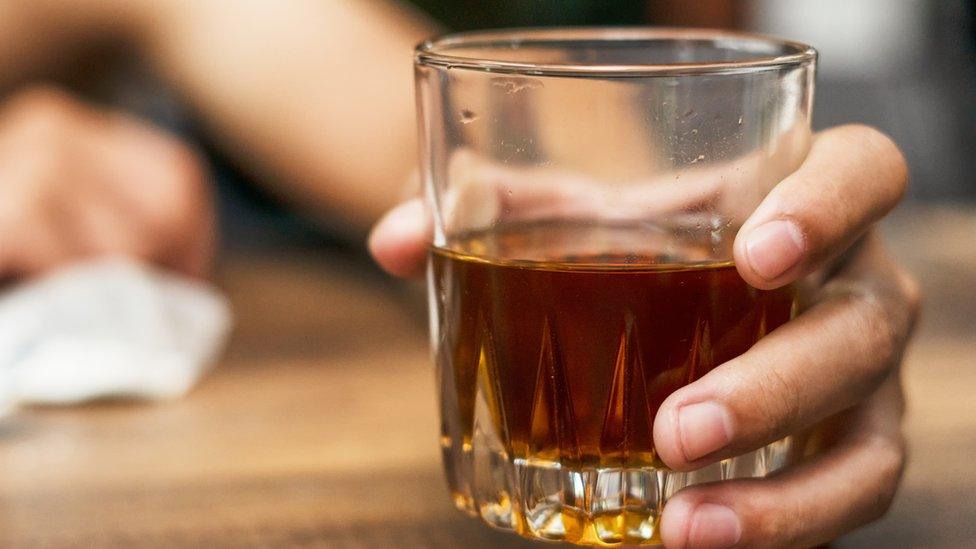Dry January: I stopped drinking and never really went back
- Published
'Do I need alcohol every time I go out?'
"New Year, New Me", or so they say.
For many, 1 January marks inward promises of better health, financial control and optimistic plans for the future.
Millions are believed to be taking part in Dry January this year, a public health campaign first introduced in 2013 by Alcohol Change UK., external
Dry January's organisers say a month without alcohol can boost your sleep, give you more energy and help your mental health.
While many will celebrate the arrival of February by once again raising a glass, there is also a growing number of people embracing a sober or semi-sober lifestyle by significantly reducing their alcohol consumption throughout the year.
Emma Bricknell, 45, is originally from London but relocated to Northern Ireland 18 years ago.
She gave up alcohol for eight months in May 2021 following what she describes as "the worst hangover of my life" and now lives a mostly sober lifestyle.
'I function better'
"I just stopped drinking and I never really went back again, I don't drink the same," she said.
"I went out without drinking and got myself into a nice ritual of being the designated driver, I really loved it, I functioned a lot better, I wasn't as paranoid.
"My connections - some got better, some people I disconnected with - I viewed things better and in conversations I knew when to pull back."
However, Emma said she found herself pressured by others to join in and that she felt her abstinence made others feel insecure "as it reflects on their own drinking".
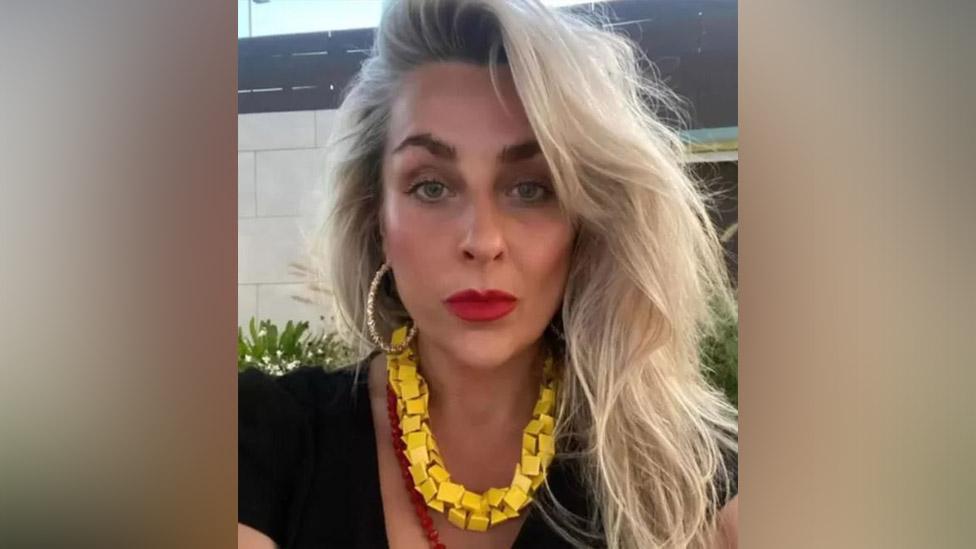
Emma says she has reaped the benefits for giving up alcohol
Ms Bricknell thinks the people of Northern Ireland have a concerning relationship with alcohol compared to other countries.
"For me Dry January is all very well, but I think Northern Ireland has to look at how we deal with alcohol in general," she said.
"I've never seen people get so loaded at a funeral. Christenings are about alcohol, weddings.
"There's a really unhealthy connection to it here and there's a bigger picture about how you break that down in Northern Ireland."
Dry January's organisers warn complete abstinence could prove problematic for those with alcohol dependency.
In 2022 a Stormont report said harms caused by drug and alcohol use in Northern Ireland were "significant and likely to get worse".
Across the UK, a record number of people died from alcohol in 2021, with Northern Ireland presenting the second highest rate, according to the Office for National Statistics.
Data compiled by the Northern Ireland Statistics and Research Agency, external showed 350 of the 17,558 registered deaths in 2021 were due to alcohol-specific causes.
A 53.9% increase on the number recorded 10 years beforehand.
'I don't need it to enjoy myself'
Mal Byrne from Extern, a charity that works with people dealing with drug and alcohol issues, said anyone wishing to manage problematic alcohol use, including reducing intake significantly, should seek professional or medical advice before doing so.
"Dependence on alcohol can be both physical and psychological and unlike withdrawal symptoms with other substances, alcohol withdrawal can cause significant physical ill health."
Mr Byrne said they operated an intensive and long-term person-centred approach "rather than complete abstinence from the use of alcohol".
Robert Boyd, 38, from Londonderry, said he curbed his drinking after university, finding alcohol consumption to be unsustainable alongside shift work.
"I told my friends that it couldn't go on as I couldn't turn up with a raging hangover," he said.
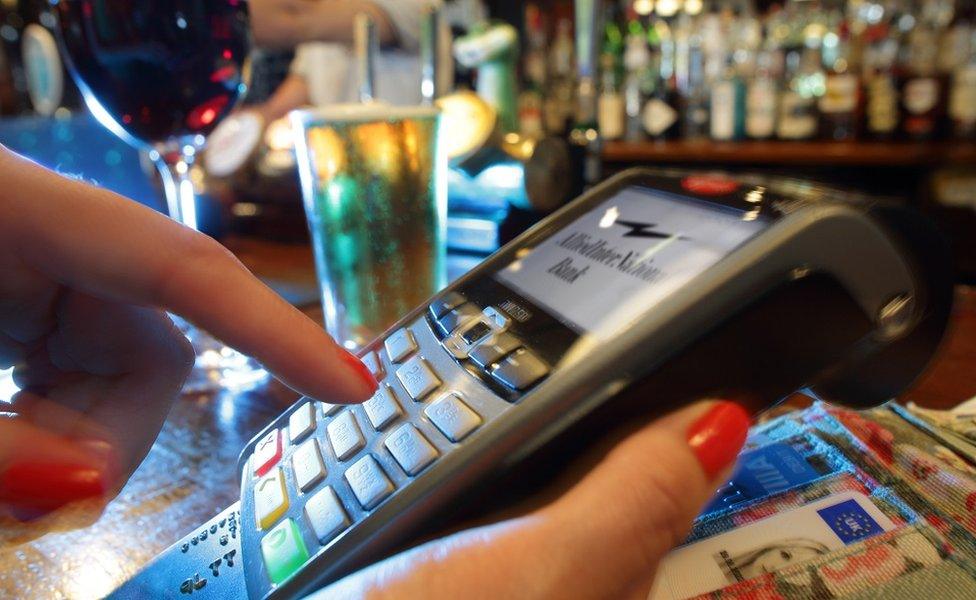
Robert says the cost-of-living crisis means people are more understanding if their friends can't go for a night out
Although Mr Boyd chooses not to regularly drink alcohol, he said he has had "many brilliant nights being the designated driver" and has never felt pressured to join in.
"Before you would have been made fun of or not invited to nights out or events but I don't think that's the case now," he said.
"Plus, with the current cost-of-living crisis and the cost of a drink when out, people are beginning to be much more understanding if friends can't make a night out.
"I don't have drink as part of my regular lifestyle, I don't need it to enjoy myself."
Related topics
- Published1 January 2023
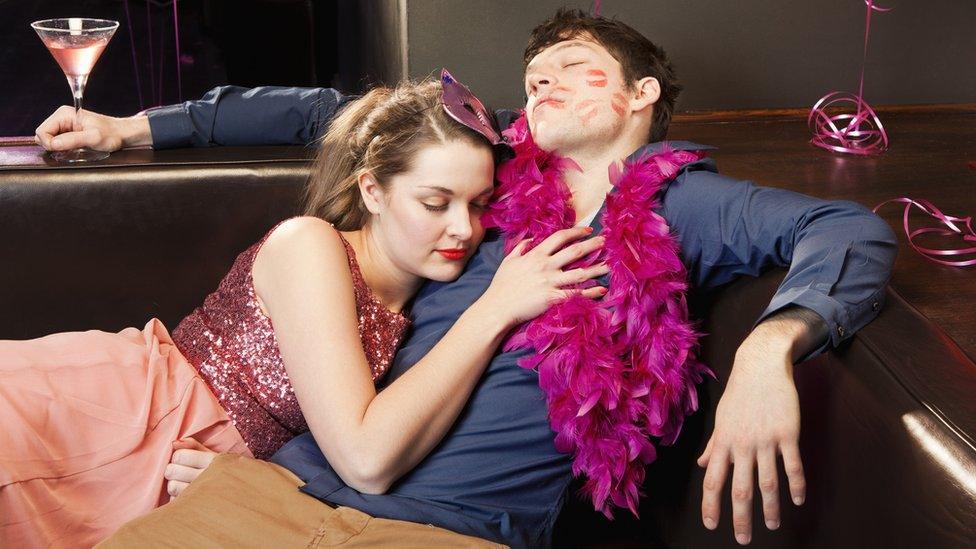
- Published27 January 2022
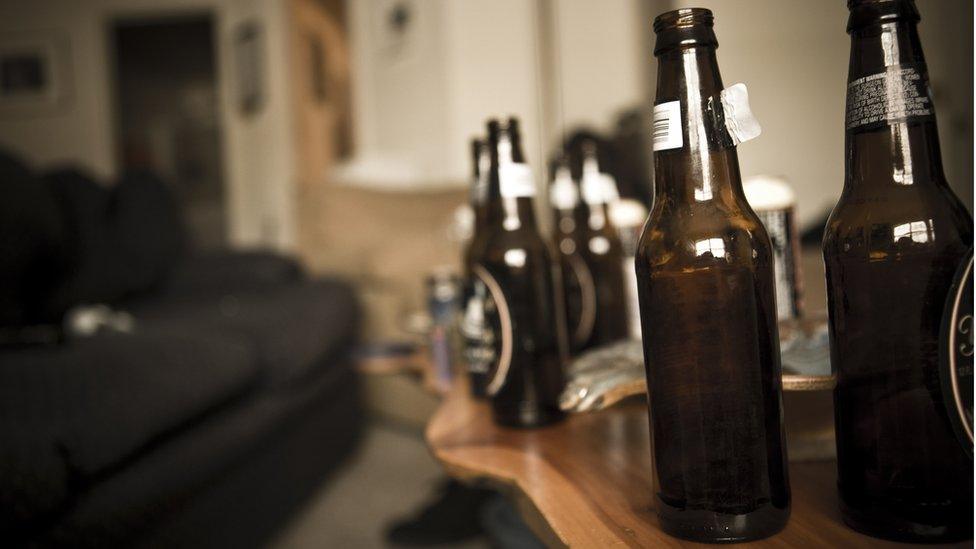
- Published8 December 2022
